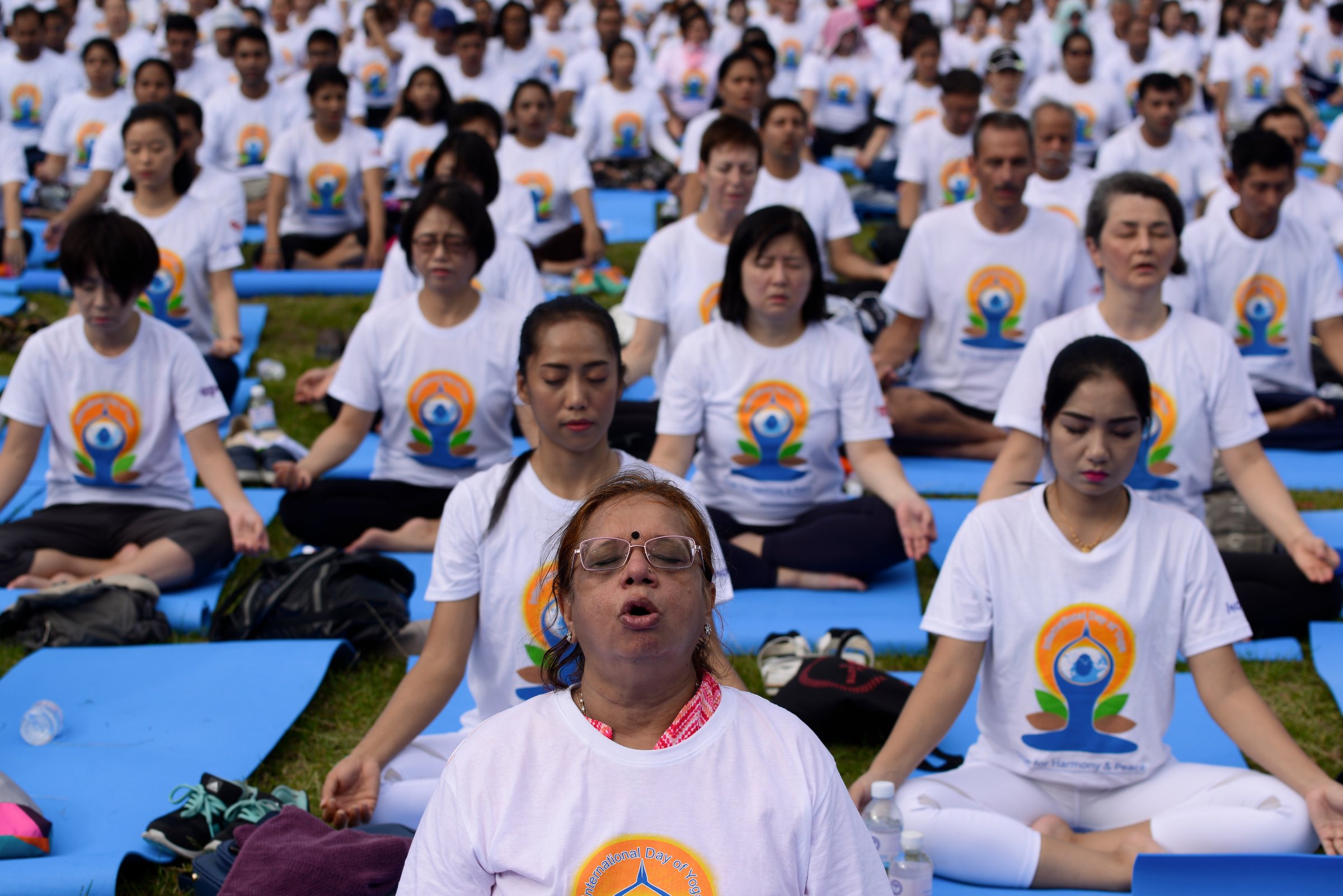
Yoga is among India’s most popular cultural exports. People across the globe have adopted the ancient practice for its physical, mental and spiritual benefits. But along the way, yoga has morphed and been adapted to suit the modern gym-going public, leading some yogis to voice concern that it has become little more than a series of stretching exercises, divorced from its roots as a meditative discipline.
In an attempt to find out the true essence and importance of yoga, TIME spoke to traditional Indian teachers for the International Day of Yoga, which falls on June 21. Here’s what they had to say.
Kanchen Mala, instructor, Mysore Krishnamacharr Yoga Shala
“You must remember that yoga isn’t just about physical fitness—you also have to be mentally fit. You can’t get distracted easily and your mind must be focused. How long can you hold an asana [pose]? How long can you control your breathing? That matters. Many care only about external beauty, but pay attention to the internal elements as well.
It’s also important to understand some parts of the philosophical and cultural aspects of the yoga you learn—that will help you gain the most. And commit to yoga sincerely because it takes time to get it right.“
Swami Hari Om Ananda, instructor, International Sivananda Yoga Vedanta Centre
“Yoga is a medium. It helps connect your body to your mind, and on a larger scale it connects the micro, which is you, to the macro, which is the universe. It helps practitioners experience the world around them from within and not base their lives solely on external objects.
The problem now is that courses are designed without knowledge of basic elements and that can lead to health problems. Your mind and body need to be free of toxins, otherwise the energy in your body will clot. And bad energy in the system can harm you.
Being aware of traditions is useful in having a holistic experience. It’s like eating food—you enjoy the experience more when you know what you’re eating rather than just consuming what is in front of you.“
Dr. Rajalakshmi, instructor, Ramamani Iyengar Memorial Yoga Institute
“Your body is the first instrument given to you to understand this world and yoga helps you use it in the best way to maximize your experience. But to do that you need to focus on multiple things: the mind, the body, the spiritual and the physical. Getting in to the correct asana is good but you must also train your mind not to oscillate.“
Swami Sarvapriyananda, minister and spiritual leader, Vedanta Society of New York
“The term “yoga” covers many fields and it’s a very comprehensive science. Doing it the right way can change the way you live, work and love. People should try and explore the higher dimensions of yoga because a large part of the experience is beyond the physical elements. It helps us discover what we are beyond our bodies.
There is some vulgarization and distortion of yoga today and that’s sad. The motivation seems to be commercial. I think there needs to be some level of standardization and it’s encouraging to see the Indian government take steps in this direction. But on the other hand, we have to acknowledge that yoga is continuing to thrive and survive because the global community has embraced it. It’s important to recognize the freedom to innovate and share yoga to ensure it reaches as many people as possible.“
More Must-Reads From TIME
- Dua Lipa Manifested All of This
- Exclusive: Google Workers Revolt Over $1.2 Billion Contract With Israel
- Stop Looking for Your Forever Home
- The Sympathizer Counters 50 Years of Hollywood Vietnam War Narratives
- The Bliss of Seeing the Eclipse From Cleveland
- Hormonal Birth Control Doesn’t Deserve Its Bad Reputation
- The Best TV Shows to Watch on Peacock
- Want Weekly Recs on What to Watch, Read, and More? Sign Up for Worth Your Time
Write to Kamakshi Ayyar at kamakshi.ayyar@time.com